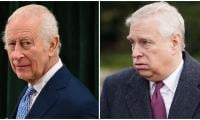Islam, governance and the Taliban
Although there is an unmistakable march of secularism around the globe, religion continues to play an important political role in many parts.
Currently, there are 27 countries in the world where Islam is the official state religion. Even Christianity, one denomination or another, has been adopted as a state religion in 13 states – including nine European states. Moreover, two states have adopted Buddhism and one Judaism as their official state religions.
In addition to the 43 countries that have embraced a faith as the official state religion, there are approximately 40 others that have embedded institutional preference for one particular faith.
Going by the above statistics, collected by the Pew Research Center, when the Afghan Taliban declare that Islam would be central to their governance, they hardly make an unusual statement. But the level of anxiety that the role of religion in a future Taliban setup invokes is entirely without recent parallels. Such a juxtaposition logically raises two interrelated questions: what makes a religious state under the Taliban particularly problematic? And is there a realistic possibility that the Afghan Taliban adopt a version of Islamic governance that addresses the domestic and international apprehensions regarding inclusivity without causing an internal fallout?
The obvious answer to the first question is the Taliban’s past record as the dominant power in Afghanistan between their capture of Kabul in 1996 and before their ouster from power by the US-led international forces. To put it mildly, the Taliban rule, during the time, was defined by ideological and ethnic exclusion. Their treatment of opposition and resistance was brutal, and their attitude to governance uncompromising.
Since then, the Taliban have done little to dispel the concerns that they would resort to the enforcement of similar practices of governance in the country. Last October, during their engagement with regional states in Moscow and as recently as last week in their negotiations with the representatives of the EU and US in Norway, the Taliban have refrained from making concrete guarantees to mollify these anxieties.
The other answer to the same question is that while many states, as noted, have adopted one faith as a state religion, the idea of citizenship in most of these states is largely secular. Without going into specific examples, it suffices to say that there are variations in how states with official religions view and act toward their citizens. However, in general, wherever available, the constitutions of these states recognise near-equal political and civic rights of their citizens irrespective of their faith.
The Taliban lack a coherent constitution that clearly lays out state-citizen and state-society relations. However, it is clear to anyone who keeps half an eye on Afghanistan that not only does the Taliban rule diminishes the quality of citizenship for non-Muslims but also for Muslims who might not, ideologically speaking, see eye to eye with the Taliban.
Here, I must note that in almost all the states that have an official state religion or prefer a religious ideology to all others, there is some level of political and civic exclusion towards groups that do not hold the official version of the state’s religious ideology.
The difference between what the Taliban system of governance potentially looks like and other religious states, therefore, is often that of degree rather than principle. What is the threshold that governments must meet in order for them to be accepted into the international community? The truth is that there does not exist a threshold of inclusivity that makes a government eligible for becoming a recognised member of the international community. If there does exist a subjective threshold, it would be higher for the Taliban, considering their less than stellar past record. To add to it, strategic priorities and compulsions arguably influence the decision to recognise a government to a greater degree.
This brings us to the question of what the Taliban can do to strike a balance between adopting a system that is inclusive. The existing Muslim states that have adopted Islam as the state religion can broadly be classified into Islamic republics and Islamic monarchies. The Islamic republics do not always have the word ‘republic’ in the state’s official name, but in essence they combine principles of a republican form of government while acknowledging Islam as the broader organising principle. The Islamic monarchies are again divided among those that are constitutional monarchies, like Malaysia, and traditional monarchies of the Middle East.
During their previous stint in power, and upon returning to power in 2021, the Taliban have called Afghanistan an Islamic emirate. The nomenclature in itself is not unusual among the contemporary Muslim states. Technically, Kuwait, the UAE and Qatar are also emirates. However, there are practical differences between the Taliban and the three Middle Eastern states. Regardless of the titles, these states are in reality traditional monarchies.
The Taliban have hinted from time to time how a system under their rule in Afghanistan would look. For instance, a senior Taliban commander Waheedullah Hashimi was reported by Al-Jazeera to state that the system of governance will not be democratic. He also said that there would be a council of ulema to determine the legal system. Apart from their statements, it is certain that the system will be based predominantly around Hanafi-Deobandi interpretation.
In time, the details of the contours of the system of governance under the Taliban would become clearer. Needless to say, a system that fails to address the religious and ideological diversity of Afghanistan and does not take into account the demands and reality of the changing Afghan society will find opposition domestically and internationally.
The writer is an assistant professor of political science at the University of Peshawar. He can be reached at: aameraza@gmail.com
-
 The Pope Breaks His Silence On Iran Attacks: Breaking
The Pope Breaks His Silence On Iran Attacks: Breaking -
 US On High Alert After Overnight Joint-military Strikes On Iran: FBI
US On High Alert After Overnight Joint-military Strikes On Iran: FBI -
 Prince William 'frustrated' By Delay In Major Move Against Andrew
Prince William 'frustrated' By Delay In Major Move Against Andrew -
 BLACKPINK's Rose Makes K-pop's History With Major Win
BLACKPINK's Rose Makes K-pop's History With Major Win -
 Noel Gallagher Gives Shut-up Call To Critics After Receiving BRIT Award
Noel Gallagher Gives Shut-up Call To Critics After Receiving BRIT Award -
 Pentagon Used Anthropic’s Claude AI In Iran Attack Despite Ban: Report
Pentagon Used Anthropic’s Claude AI In Iran Attack Despite Ban: Report -
 Nvidia Teams Up With Telecom Firms For AI Driven 6G
Nvidia Teams Up With Telecom Firms For AI Driven 6G -
 SpaceX Launches 25 Starlink Satellites On Its Falcon 9 Booster From The West Coast
SpaceX Launches 25 Starlink Satellites On Its Falcon 9 Booster From The West Coast -
 Expert Reveals What Makes Investigations Hard In Search Of Savannah Guthrie Mother Nancy: 'Silent Witness'
Expert Reveals What Makes Investigations Hard In Search Of Savannah Guthrie Mother Nancy: 'Silent Witness' -
 'SNL's Strongly Reacts To BAFTA's Racial Slur With Tourette’s Sketch
'SNL's Strongly Reacts To BAFTA's Racial Slur With Tourette’s Sketch -
 Austin Shooting Leaves Multiple Dead, Dozens Injured
Austin Shooting Leaves Multiple Dead, Dozens Injured -
 Meghan Markle Friends Break Silence As Duchess Plan To Return To UK
Meghan Markle Friends Break Silence As Duchess Plan To Return To UK -
 Dua Lipa Stuns Everyone On And Off Stage At 2026 BRIT Awards
Dua Lipa Stuns Everyone On And Off Stage At 2026 BRIT Awards -
 2026’s Most Visited Websites Revealed: ChatGPT Overtakes Major Platforms
2026’s Most Visited Websites Revealed: ChatGPT Overtakes Major Platforms -
 Worst Cricket Moments That Shocked The Game
Worst Cricket Moments That Shocked The Game -
 Prince Harry, Meghan Markle Reach A Crossroads: ‘You Could Lose Everything’
Prince Harry, Meghan Markle Reach A Crossroads: ‘You Could Lose Everything’



